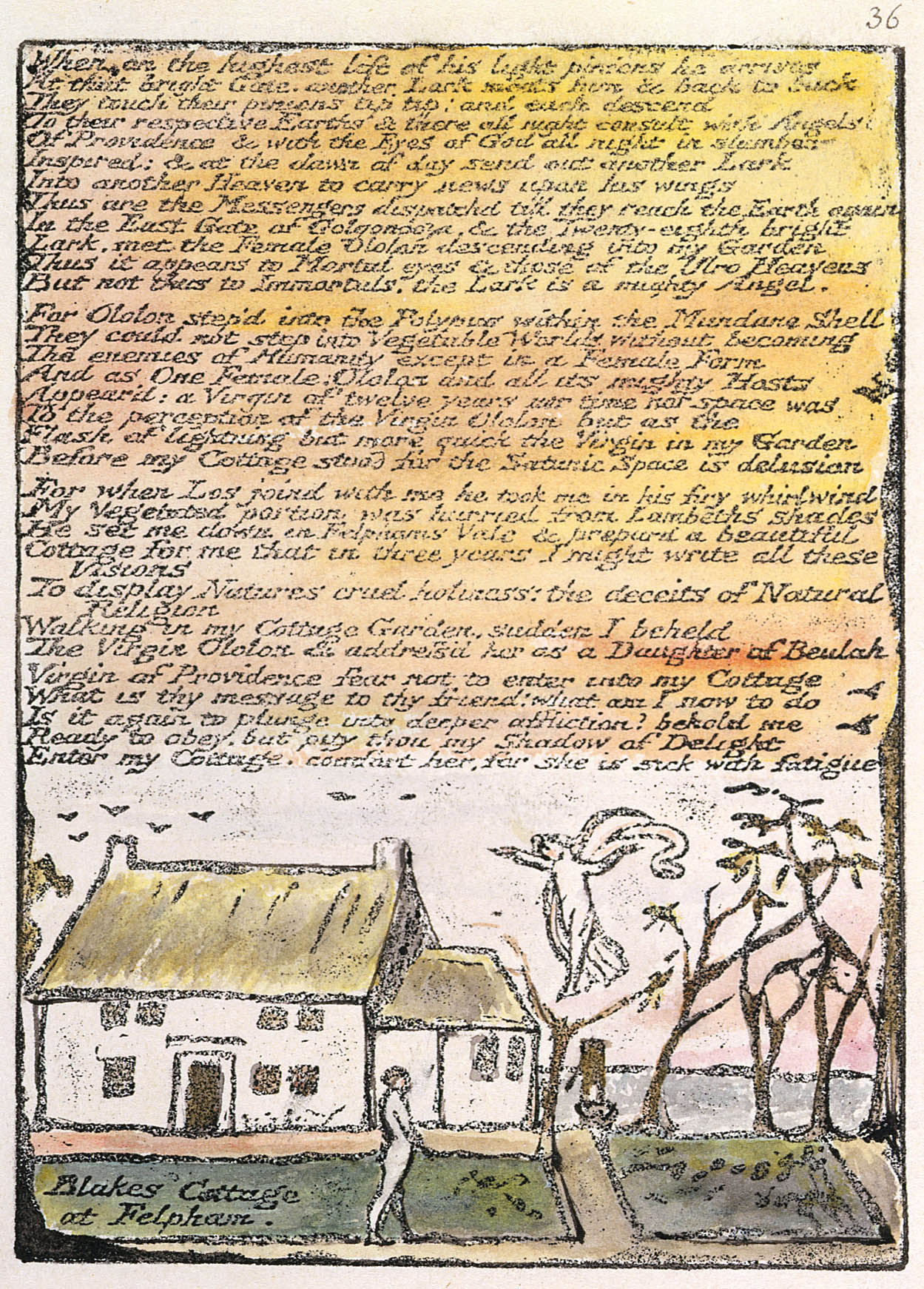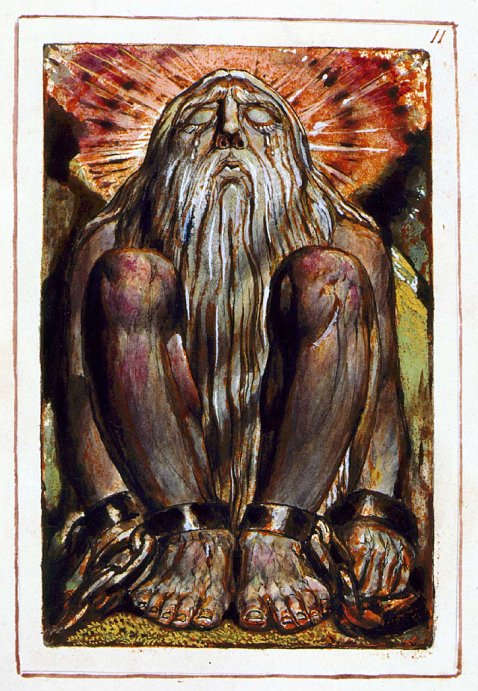Allen Ginsberg on the Book of Urizen
The Allen Ginsberg Project has recently begun publishing unedited transcriptions of Ginberg’s lectures on the First Book of Urizen, given in 1978 at the Naropa Institute. When the serialization is complete, there should be about 12 lectures available. The preliminary lecture is here and includes a brief bibliography and other first-day basics. I imagine the first day of a Blake seminar led by Allen Ginsberg would have been a little more exciting than your average first day of class!
The second lecture, on the Gnostic background of Urizen, is here. Ginsberg gives a nice crash course in Gnosticism and also ties the ideas into Buddhist principles, like vajra, or intellect. In his useful comparison of vajra and Urizen, he notes that
In Buddhism, vajra quality can also have its corrupted or perverted opposite, where you have an excess of vajra, where everything is complete intellect and cutting through (perhaps cynical or destructive intellect, or negative intellect, or intellect that’s so solidified and impacted that it doesn’t allow for any feeling, or any richness, or any generosity, or any work…).
He also talks about Urizen as an apt figure for modernity, which also requires people to deal with “titanic forms,” like the atom bomb. Ginsberg also gives a good bit of background in this lecture on Blake’s social circle and his ties to figures like William Godwin and the Neoplatonist Thomas Taylor.
The third lecture, on Urizen and Milton, is rich with analysis and connections to contemporary issues (like politics and drug culture). It also includes an aside on Milton’s apparitional visit to Blake at Felpham.
Lecture four can be found here, and introduces Los, who “gives a body to Falsehood [Urizen] that it may be cast off for ever.” Ginsberg notes that Los gives Urizen a body to
Take it, transform it into something poetically visible, which can then be analyzed, observed, reasoned upon, understood, seen clearly, and related to . . . [to] try and find out his system. Because if you have his system then you’ll have his secret. Then you’ll know wherefrom he comes, how he operates, why he’s doing what he’s doing and what his functioning is. And every Satan has a system.
The next lecture should be up next week at some point, and promises to be fascinating!
Continue reading

